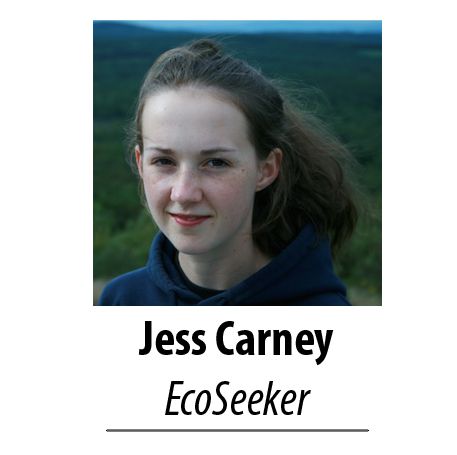
The concept of cause and effect is relatively simple, but when it is applied to environmental sustainability it becomes less so. The logic is easy enough to understand, but putting it into context is challenging. The environment is incredibly complex so cause and effect are not always straightforward and the scale can just be hard to imagine. Using a couple of extra gallons of water or turning on a couple of extra lights has an infinitely small impact on the overall system so that it doesn’t seem to matter. In reality though, absolutely everything matters, and everyone makes a difference whether they know it or not.
The extra effort required to recycle a plastic bottle doesn’t always seem worth it — it is not as if some small woodland creature is going to die because one bottle wasn’t recycled. However, a few unrecycled bottles here and there eventually add up. Although the consequences aren’t exactly obvious, in a way that one un-recycled bottle contributes to global climate change. While the person disposing of the bottle certainly won’t notice a few extra degrees over the next 100 years, he or she might notice the price of energy, food and water increasing slightly or a slightly higher death toll from a natural disaster in another country. When it is put into perspective this way, the extra steps to the recycling bin don’t seem so far after all.
Regardless, society continues to harm the environment by stripping it of fresh water, fertile soil, fuel and other resources all while polluting its skies and seas and destroying its forests. As a result, temperatures are increasing, level sea levels are rising, weather patterns are becoming unpredictable and increasingly severe, ecosystems are changing and biodiversity is decreasing. This harms not only the environment itself but humans as well because as agricultural yields decrease, water becomes scarce, fuel gets harder to obtain and disease spreads faster. Conflict will inevitably erupt.
This environmental crisis is caused by an inability to comprehend long-term, indirect consequences because even though individual actions can seem insignificant, they are not. The environment is an amazingly intricate system and everything within it is connected, meaning that environmental sustainability involves everything from the shampoo people buy, the way they get to work, the laws the government passes and the investments companies make. The cause and effect of every decision may not always be clear but it always has an impact.
The prospect of actually having an influence may seem intimidating, but it is also an opportunity.
“What you do makes a difference, and you have to decide what difference you want to make,” Jane Goodall once said.
You can either contribute to the problem or become part of the solution. In order to be an effective part of the solution you need to understand what you are up against. That is the purpose of EcoSeeker.
EcoSeeker is a column which will attempt to improve environmental sustainability in the Hopkins community and beyond by raising awareness, explaining the facts and giving some advice on how to make sense of it all. Some articles will explore important topics in the field of environmental science such as climate change, renewable energy, genetically modified organisms and recycling and biodiversity, while others will report on current news such as technological developments, research advancements and legislative happenings. A few articles will discuss how to improve your ecological footprint and give tips and tricks that will help you to make informed decisions in your everyday lifestyle. The people of Hopkins are incredibly intelligent and talented, so the hope is that by reading the EcoSeeker, you will be motivated to use your knowledge and skills in the vital search for sustainability.
















